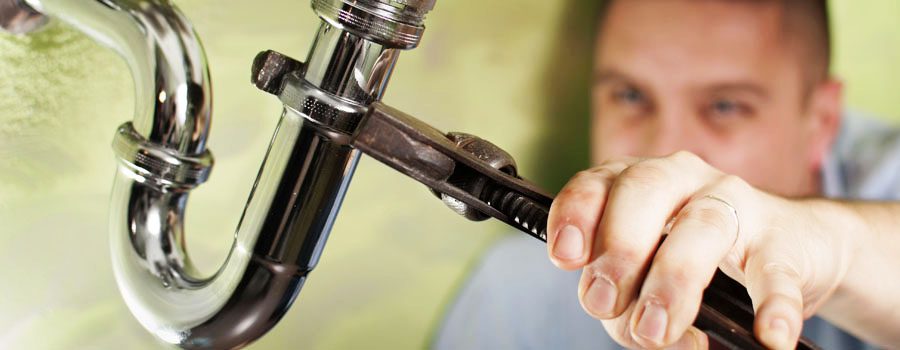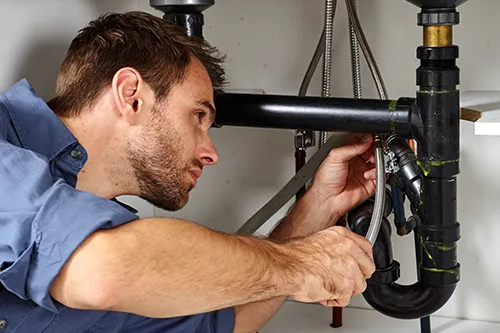Could You Destroying Your Plumbing Systems? Six Critical Signs
Could You Destroying Your Plumbing Systems? Six Critical Signs
Blog Article
The author is making a few great pointers about Don’t Let an Earthquake Damage Your Plumbing overall in this great article further down.

The secret to long-term devices, unsurprisingly, is proper maintenance. There's no set guideline that can ensure your plumbing devices a lengthy wear, yet you can prevent unnecessary damage as well as repair services by preventing negative plumbing habits.
You must quit doing these 6 points else you'll maintain calling your plumber over for minor faults.
Flushing whatever
Yes, your bathroom drain results in the sewers, yet that does not imply you should dispose simply anything away. Numerous 'flushable' materials are actually excellent obstruction beginners, as an example floss. Asides maintaining evident non-flushable materials like cables and plastics out of your toilet, you should also avoid flushing cotton swab, menstruation items, wipes, daipers and also prophylactics down the commode drainpipe.
Putting oil in the sink
We know appropriately getting rid of oil after a hearty meal is a pain. However merely putting it down the tubes can do long-lasting harm to your pipes. "The fat and also oil can block your drainpipe terribly sufficient to force you to call a plumber," explains Dawson. "Plumbing functions best when it's well cared for-- not abused with oil."
Using excessive drain cleaner
Making use of a drain cleaner more than once or twice a month is an indicator that something serious is going on within your pipes. Currently, instead of encountering the main issue, you go for a quick fix; a fizzy drainpipe cleaner. Rightfully, a drainpipe cleaner will look after the clog, however at what expense?
The chemicals in a drain cleaner can speed up the deterioration of your pipelines. Add that to whatever underlying problem is triggering the obstruction as well as you may need to a significant trouble on your hands.
If you experience a lot of blockages, call your emergency plumber instead of making use of a drain cleaner.
Not washing recipes prior to filling them right into the dish washer
it's called a dishwashing machine, however throwing in dishes, pots, and also pans covered in big food bits can in fact trigger some major damage to the home appliance, bring about lasting issues down the line. "House owners might need to obtain their dish washer fixed more often if they don't rinse their meals prior to filling, or at the very least get rid of bigger food pieces," discusses Audrey Monell, owner of Forrest Anderson Plumbing as well as A/c in Glendale, Arizona. "Food that gets stuck on meals creates the dishwasher to function harder, which can wear down parts faster, causing troubles."
DIYing every little thing
With plumbing, a stitch in time actually does save 9. You can protect against a fullblown plumbing emergency by calling your plumber at the right time.
You may have found out a few plumbing hacks from your daddy, however you should certainly know where to draw the line as well as call an expert. For example, you might be able to take care of a blockage yourself, but you shouldn't try to alter a pipeline. You could mismatch pipes or overtighten a bolt, triggering even more injury and damages than you assumed. Calling a plumber is a safe and budget-friendly choice.
Not changing your dish washer tubes
One simple method to guarantee that you use your dishwashing machine for many years is to replace the hose pipe a minimum of when in 5 years. This likewise looks for washing maker pipes.
With time, food bits, soap and also oil can develop clogs within your pipelines. Replacing them promptly will stop any presure develop that can damage the internal workings of your dish washer or cleaning device.
An enhanced steel intertwined hose pipe does a terrific job of prolonging your equipment's usage time.
No winter season precautions
Extreme climate condition are bad for your pipes, especially if they're made from steel. You must protect your revealed pipes, and also your water storage tank, even if you have a hot water heater. You ought to likewise shut off your garden tube shutoff and any other external water networks. These channels are electrical outlets for cool; you pipelines can begin to ice up from outside if you don't.
How Hard Water Damages Your Plumbing and Appliances
Hard water is no stranger to most households across America. This silent invader affects 85% of homes in the United States every day, wreaking havoc on pipes, plumbing fixtures, and water-using appliances.
Should you become a victim of hard water, you must understand exactly what it is and how it affects your plumbing and appliances. This will help you determine the correct measures to put in place to fix or prevent any problems that may arise.
First off, what exactly is “hard” water?
In short, “hard water” is used to describe water that contains relatively high amounts of dissolved minerals, primarily calcium and magnesium, and a host of trace metals. When rainwater falls from the sky (usually in a pure form), it absorbs the hardness minerals from rocks and soil, which changes it from soft to hard water.
What about my plumbing and appliances?
Mineral deposits from hard water can cause buildup on tubs, shower, sinks, faucets. But that’s only a small scratch of the surface. Those minerals can gradually build up inside pipes, fixtures, water heaters, washing machines, and dishwashers. Once they accumulate in those areas, they can clog pipes and create major problems throughout your plumbing system, from reduced water flow to increased pressure on pipes and fixtures.
This limescale buildup might affect some appliances, causing them to operate less efficiently and wear down faster. And the result? Higher energy bills, more (costly) plumbing replacements and repairs, and damaged appliances.
Keep in mind that certain types of plumbing are more susceptible to clogging than others. Copper, PVC, and PEX pipes are more resistant to hard water buildup and corrosion, but they can still get clogged or completely blocked by scale deposits.
How do I know if my water is hard?
White limescale buildup on plumbing fixtures (or any of the other signs mentioned above) is usually a good sign that your water is hard. If you suspect that you have hard water, you can simply shake up a small amount of dish soap and water in a closed container. If the mixture doesn’t create a lot of suds, you probably have hard water.
The most precise method, however, is to test your water with a DIY test kit (sold online or at local home centers or hardware stores) or send a water sample from your tap to a local lab to be tested. Be sure that you understand the nature of the test, the water condition being measured, and the significance of the test results.
Another way to obtain an estimate of water hardness is to check your annual water quality report to see if your water provider has reported any instance(s) of water hardness in your water supply.
https://www.springwellwater.com/how-hard-water-damages-your-plumbing-and-appliances/

We hope you enjoyed reading our article on Don’t Let an Earthquake Damage Your Plumbing. Thanks a lot for taking time to read through our piece. Are you aware of somebody else who is interested in the niche? Please feel free to share it. Thank you so much for your time invested reading it.
Explore Report this page